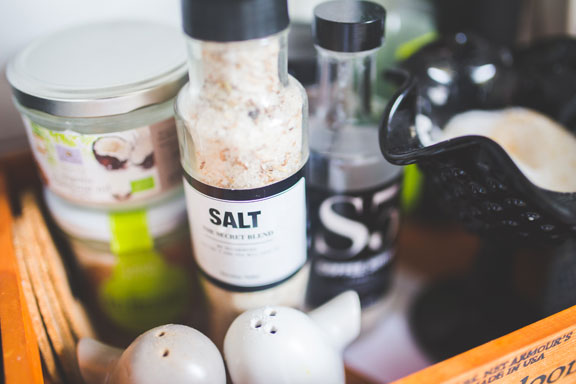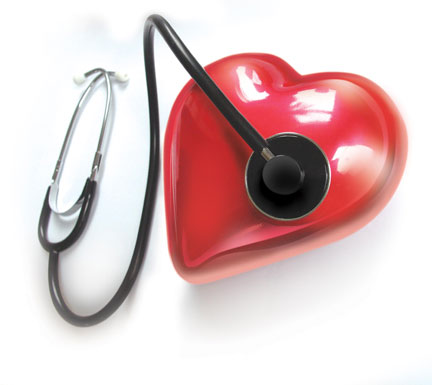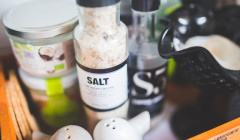Salt of the Earth
Having written about cholesterol and saturated fats I now turn the Eye of Sauron towards another perennial topic which is sodium restriction. Excessive salt intake can raise your blood pressure and increase your risk for heart attack and stroke. So if salt (sodium chloride) is bad for you it should be restricted.
 Lower salt intake should result in less heart disease and stroke. Unfortunately this just isn’t the case. As you will read below, cutting down on your salt intake too much can be dangerous. You shouldn’t sprinkle salt on your food even before you taste it. Even today the American Heart Association states that dietary sodium should be restricted to
Lower salt intake should result in less heart disease and stroke. Unfortunately this just isn’t the case. As you will read below, cutting down on your salt intake too much can be dangerous. You shouldn’t sprinkle salt on your food even before you taste it. Even today the American Heart Association states that dietary sodium should be restricted to
less than 1,500 mg a day. This guideline is exceeded by 95% of Americans! Even if you accept this premise the experts say this will only reduce your blood pressure by a few points. Going from 180/100 to 176/96 just isn’t enough to change any clinical outcomes. Don’t get me wrong: Hypertension is a killer. -It’s the main cause of stroke and a leading cause of heart disease and should be treated. Exactly how low to go is still under debate (See the recent Sprint trial). Lowering blood pressure is important. Dramatically restricting salt is just not the way to achieve meaningful results and restricting salt too much can actually have adverse effects as well. I am going to quote from several articles instead of paraphrasing as I usually do because I can’t improve on what’s on the page. Melinda Wenner Moyer wrote in the New York Times reporting on a 2006 American Journal of Medicine study: they “compared the reported daily sodium intakes of 78 million Americans to their risk of dying from heart disease over the course of 14 years. It found that the MORE sodium people ate, the less likely they were to die from heart disease.“
Don’t like that study? Too old to be relevant? How about a July 2011 meta-analysis of seven studies involving over six thousand people — published in the American Journal of Hypertension — this study “found no strong evidence that cutting salt intake reduces the risk for heart attacks, strokes or death in people with normal or high blood pressure. In Many European researchers publishing in the Journal of the American Medical Association reported that the less sodium that study subjects excreted in their urine — an excellent measure of prior consumption — the greater their risk was of dying from heart disease. These findings call into question the common wisdom that excess salt is bad for you, but the evidence linking salt to heart disease has always been tenuous.” Still not convinced? Want something more recent? The American Journal of Medicine November 2013 had this to say: “The American Heart Association recently strongly recommended a dietary sodium intake of <1500 mg/d for all Americans to achieve “Ideal Cardiovascular Health” by 2020. However, low sodium diets have not been shown to reduce cardiovascular events in normotensive individuals or in individuals with pre-hypertension or hypertension. Moreover, there is evidence that a low sodium diet may lead to a worse cardiovascular prognosis in patients with cardiometabolic risk and established cardiovascular disease. Low sodium diets may adversely affect insulin resistance, serum lipids, and neurohormonal pathways, leading to increases in the incidence of new cardiometabolic disease, the severity of existing cardiometabolic disease, and greater cardiovascular and all-cause mortality. Although a high sodium intake also may be deleterious, there is good reason to believe that sodium intake is regulated within such a tight physiologic range that there is little risk to leaving sodium intake to inherent biology as opposed to likely futile attempts at conscious control.”
 You have to wonder how the Heart Association can make such a drastic recommendation when it comes to sodium restriction in the face of these findings? I don’t get it but I don’t get the dietary fat recommendations either.
You have to wonder how the Heart Association can make such a drastic recommendation when it comes to sodium restriction in the face of these findings? I don’t get it but I don’t get the dietary fat recommendations either.
Until there is real science behind the guidelines I think you are best off following a moderate path. Don’t be afraid of salt but don’t go crazy either. Most importantly check your blood pressure periodically and if it is elevated get it down with diet, exercise and medications as needed. Don’t make the pills your first choice! Talk with your doctor about potassium chloride instead of sodium chloride because there IS evidence that a higher potassium diet may actually lower blood pressure! And you don’t have to take potassium pills; you can find plenty of potassium in mushrooms, bananas, green veggies etc. That’s right, healthy eating can lower your blood pressure! Why not give it a try … Utica Greens are still in season.
P.S. Remember … what happens at the Fair stays at the Fair!











